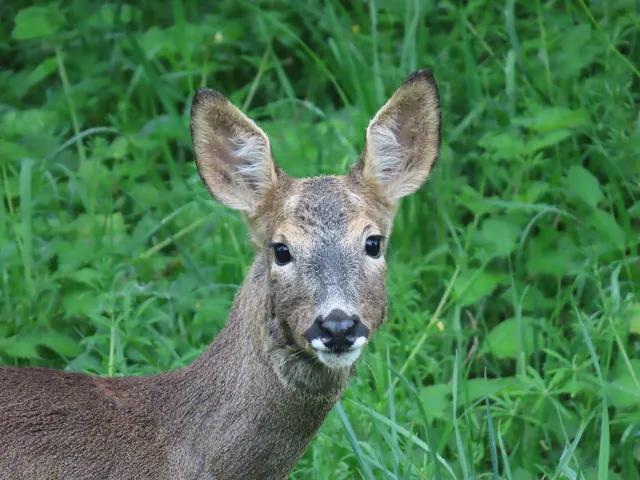Bridging Behavioural Experiments and Participatory Scenario Planning to Address Social Dilemmas in Conservation-Development Trade-offs
This paper proposes a novel hybrid method to tackle the social dilemmas that often arise in conservation: the tensions between individual incentives and collective environmental goals. The authors combine behavioural experiments with participatory scenario planning, offering a framework that captures both the psychological drivers of decision-making and the lived experiences of stakeholders.
A survey experiment (N = 360) revealed how personal temptation undermines conservation choices, especially when individuals doubt others will cooperate. Participatory workshops then grounded these findings in real-world contexts, such as dam construction and deforestation, producing scenarios that reflect take-some, give-some, lose-lose, and win-win dilemmas. Together, these methods offer a practical tool for designing context-sensitive, evidence-informed interventions.
Written by William Hohnen-Ford
This blog is based on the paper: Zhu, H., Awad, E., Lyreskog, D., Reinecke, M., Frater, J., Gomez, C., Wilhelm, K., Singh, I. (2025). Bridging Behavioural Experiments and Participatory Scenario Planning to Address Social Dilemmas in Conservation-Development Trade-offs.

How can conservation policy account for the fact that people often act against the collective good, even when they care about the environment?
In our recent paper, Bridging Behavioural Experiments and Participatory Scenario Planning to Address Social Dilemmas in Conservation-Development Trade-offs, we argue that many of the hardest conservation challenges are rooted in social dilemmas where personal short term gains conflict with long term ecological and societal interests. Our core proposal is methodological: we show how combining behavioural experiments with participatory scenario planning can both explain why cooperation fails and help design solutions that stakeholders actually support.
The anatomy of a dilemma
We focus on four classic social dilemma types:
- Take-some dilemmas, where individuals benefit by overusing shared resources (e.g. logging, overfishing);
- Give-some dilemmas, where collective good requires individual sacrifice (e.g. community-led conservation efforts);
- Lose-lose traps, where neither side benefits (e.g. degraded farmland and lost biodiversity); and
- Win-win opportunities, where human well-being and environmental health align (e.g. nature-based solutions to climate adaptation and ecosystem restoration).
Too often, policy tries to leap directly to the win-win without addressing the psychological and structural forces that tip people into the other three states. We show that it’s not enough to tell people what’s better for everyone. Instead, we need to understand the mental models, expectations, and values shaping their behaviour.
Testing the psychology behind conservation choices
In the first part of our study, we conducted a controlled online experiment (N = 360) where participants faced hypothetical scenarios about preserving or repurposing local green spaces. These scenarios varied in who stood to benefit or lose (the individual, the community, or both), and how decisions were framed, either from a first-person perspective or by judging someone else’s behaviour.
We found that when people imagined themselves personally gaining from development, their support for conservation dropped sharply. However, when asked what someone else should do in the same scenario, they were far more likely to endorse preservation. The discrepancy between personal action and normative expectation was especially large under “temptation” conditions, where personal gain came at collective cost.
This gap suggests that people often hold others to higher ethical standards than they apply to themselves, particularly when personal profit is on the line. It also highlights how social expectations (“what others will do”) and moral beliefs (“what should be done”) interact to shape conservation-relevant decisions.
From lived experience to experimental design
To connect these psychological insights with real-world dilemmas, we ran participatory workshops with community members. Participants co-designed three detailed conservation-development scenarios:
- A proposed dam that could boost renewable energy but threaten ecosystems and displace residents.
- Forest clearance for agriculture, where local livelihoods clash with biodiversity and indigenous heritage.
- Tourism development along a shoreline, balancing economic gains with habitat protection and cultural preservation.
In each case, we worked with participants to map out take-some, give-some, lose-lose, and win-win variants of the dilemma, and identify the key trade-off variables that could be tested in future experiments. For example, in the dam scenario, whether there was an alternative site, and whether the benefits would reach a large or small population, were flagged as key factors that could shift public support.
This kind of co-design ensures that experimental designs reflect the complexity of real-world decisions, while also engaging stakeholders in shaping the kinds of questions research should ask.
A framework for action
We conclude by offering a four-phase procedural framework that researchers and policymakers can use to design conservation interventions grounded in both evidence and community priorities. It begins with identifying behavioural drivers (like expectations and beliefs), moves through co-design workshops to extract meaningful context, integrates these into structured experimental designs, and ends with iterative testing and policy feedback.
By combining empirical experimentation with narrative co-creation, our method offers a way to move beyond abstract models or top-down directives. It helps identify the leverage points where individual incentives, community norms, and environmental goals can be realigned.
Written by William Hohnen-Ford
The full pre-print version of the paper can be accessed here: https://doi.org/10.21203/rs.3.rs-7014239/v1
This blog is based on the paper: Zhu, H., Awad, E., Lyreskog, D., Reinecke, M., Frater, J., Gomez, C., Wilhelm, K., Singh, I. (2025). Bridging Behavioural Experiments and Participatory Scenario Planning to Address Social Dilemmas in Conservation-Development Trade-offs.